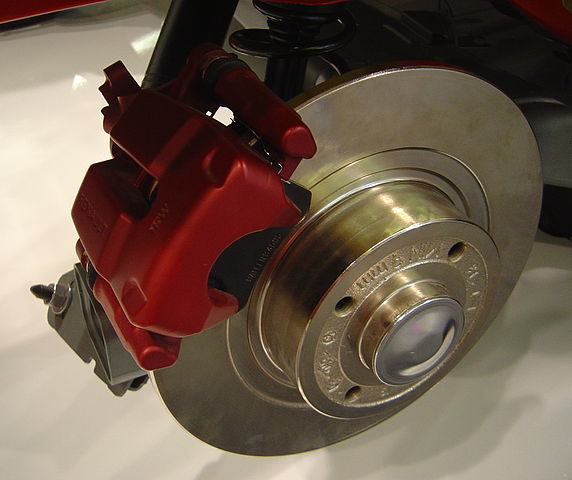DOJ announced that CWD Holdings LLC, an auto brakes importer, agreed to pay $8 million to resolve allegations that it violated the False Claims Act by committing customs fraud. According to the government, CWD falsely claimed its product was unmounted brake pads, which have no customs duty. In fact, CWD imported mounted brake pads subject to a 2.5% customs duty.
CWD Engaged in Customs Fraud Through Misclassification
CWD falsely described its brake pads as unmounted. This type of customs fraud known as a “misclassification” scheme. Misclassification occurs when an importer falsely describes the product as one with a lower or no customs duty.
Here, CWD imported into the United States mounted brake pad sets subject to a 2.5% tariff under the Harmonized Tariff Schedule. However, the importer misrepresented the nature of the imported goods to United States Customs and Border Protection (“U.S. Customs”). CWD falsely declared that the product was unmounted brake pads, requiring the payment of no duty.
CWD Holdings avoided millions of dollars in customs duties by misrepresenting the nature of the imported goods to U.S. Customs. With this lawsuit and the accompanying resolution, CWD Holdings is being held to account for its unlawful evasion of customs duties.
U.S. Attorney Matthew Schneider for the Eastern District of Michigan.
Settlement is the Result of Two Whistleblower Cases
This customs fraud was brought to the attention of the government by two whistleblowers who filed lawsuits under the qui tam, or whistleblower, provisions of the False Claims Act. Both of the whistleblowers, Jeffrey Hawk and Steven Hughes, are former employees of CWD Holdings and/or its subsidiaries.
The courts and the U.S. Department of Justice (DOJ) have shown increasing support for applying the so-called “reverse false claims” provisions of the False Claims Act (FCA) to combat and deter customs fraud. That section of the FCA imposes liability on any person who conceals or decreases an obligation to pay money to the government.
The False Claims Act allows the government to collect three times the value of the customs duty evaded in addition to statutory penalties. The False Claim qui tam provisions permits private parties to file suit on behalf of the United States. They share in a portion of any recovery. The whistleblowers in this case will receive $1.48 million of the settlement amount.
Putting the Brakes on Customs Fraud
Bad players can gain significant and unfair advantages by cheating on their customs duties. But this case also shows that employees can fight back by filing a False Claims Act complaint. Whistleblower Law Collaborative has successfully represented whistleblowers in customs fraud cases.
If you believe that your employer (or a competitor) is committing customs fraud, we urge you to contact us for a confidential and free consultation to discuss your options under the False Claims Act and other whistleblower programs.
The two qui tam cases are United States ex rel. Jeffrey Hawk v. CWD Holdings, LLC, et al., Case No. 17-12225 (E.D. MI), and United States ex rel. Steven Hughes v. CWD Holdings, LLC, Case No. 19-CV-7089 (C.D. CA).

